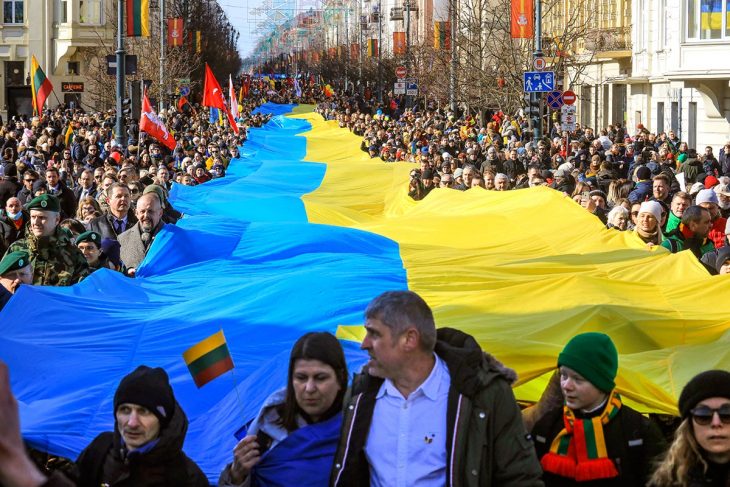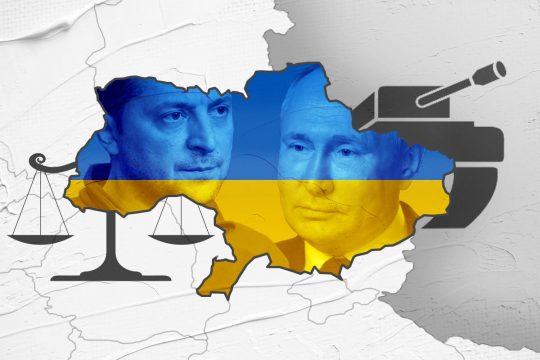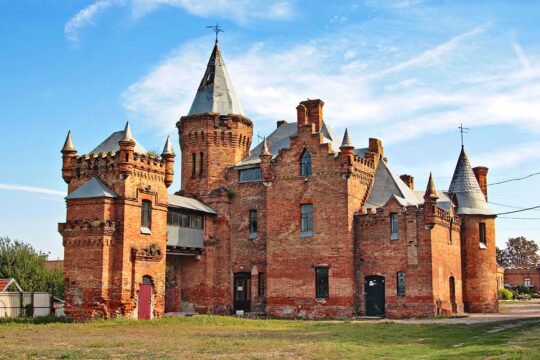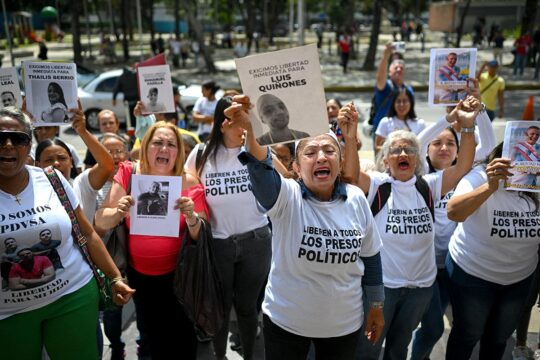“We have been victims of Russia, Russian aggression, Russian occupation. And it's not only Soviet Russia, but also Russia, imperial Russia that in the end of the 19th centuries. We are victims of Russia and our geography is like destined to be always threatened. Russia doesn't change. And Russia is not going to change very easily”, says Dovilė Jakniūnaitė, professor of international relations at Vilnius University, when asked how Lithuanians perceive Russia.
Right after Russia's full-scale invasion of Ukraine, the world saw the rise of little Lithuania, which took the lead in rallying states to support Ukraine via international law: Lithuania was first to refer the Ukraine situation to the International Criminal Court (ICC); then it pushed for the establishment of the Joint Investigative Team at Eurojust; it is gathering evidence for potential war crimes trials; it has sent teams of investigators to work with Ukrainian colleagues; it has lobbied for a special tribunal to try aggression; and has provided support for Ukraine’s genocide case against Russia at the International Court of Justice.
“International responsibility should exist, not only on paper”
“No single institution actually covers all types and levels of accountability, so all avenues have to be have to be used,” says Lina Strupinskienė, associate professor at Vilnius University. We took up this role, Deputy Minister of Justice Gabija Grigaitė told Justice Info, “because, we know, you know, we have been occupied by Russia more than once and the last occupation lasted for almost 50 years. So, we know what it is to have a neighbour like this and we also know how important solidarity and support is. International responsibility should exist, not only in the treaties or on paper, but in the reality also”.
And using judicial resources to relentlessly hold Russians accountable is part of Lithuanian national identity. The defining incident in recent history occurred on January 13, 1991, during the fight to regain independence from the Soviet Union, when thousands of citizens defended key institutions against tanks and paratroopers. 14 people died and hundreds of peaceful protestors were injured. For decades, the Lithuanian authorities doggedly pursued the individuals responsible for that violence through trials, mainly held in absentia.
This “exceptional experience” is part of what Lithuania has to offer international investigators, mentioned Nida Grunskienė the Lithuania prosecutor general at a press conference in The Hague in May this year. Working on these cases for 30 years with no international assistance was “long and complex”, she said. The long Lithuanian experience of investigation, tracking, trying and sentencing of those responsible for the January 1991 violence means investigators “have a lot of experience to share and a lot of lessons learnt, especially when it comes to collecting and preserving evidence to be used in in further proceedings” says Strupinskienė.
Collecting, collecting, collecting
On Ukraine, the Lithuanian prosecutor general and her team “are conducting preliminary pre-trial investigations at the moment”, with “a pretty big team of over 40 prosecutors, police, financial crime officers that are building cases, collecting evidence”, says Strupinskienė. They are primarily talking with the thousands of Ukrainian refugees who have come to Lithuania. “Many of them are direct witnesses of the crimes that took place. Some of them have pictures, video materials. So, at the moment, they're basically just collecting, collecting, collecting evidence, and interviewing people”.
Cross European cooperation is necessary for enforcement, Grigaitė emphasised. “We have to prepare for enforcing justice also because we will have judgements in national courts on the basis of universal jurisdiction.” She recalls Lithuania’s own universal jurisdiction’s cases which had problems with other European courts, where trials in absentia were not accepted, and wants to head this off with agreed European arrest warrants. “We have to make sure that we understand the rules in the same way”, presses the Deputy Minister.
International law: “A tool for survival”
“We immediately understood that the aggression that has been started against Ukraine is a fundamental catastrophe for the general system based on international rule of law”, Grigaitė recalls. “It is for the whole of the peaceful democratic world, to make sure that existing international law solutions are being used to the fullest, to make the aggressor responsible and to make sure that these actions are not being left unpunished”.
In May, at the same joint press conference the then Ukrainian prosecutor general Irina Venediktova described “how important is the judicial front”, alongside the diplomatic and military, and as a way to counter Russian disinformation “with the international community of lawyers”. The Lithuanian minister agrees. To her, “Putin and his political leadership constantly elevates and communicates an alternative international law (…) that have nothing to do with international law the way it stands today. They want the rest of the world to believe that Ukraine is not a sovereign state, they invoke the right to self-defence, or that the special military operation is to save Russian Nationals, that their unfounded allegations of genocide are indeed in compliance with international law.”
“International law is being used as a tool by Ukrainians, by Lithuanians and their friends”, says Strupinskienė. “It’s a tool for survival, for keeping sanity and for communicating, basically to the world that they are on the right side of history and on the right side of the law.”
A value based foreign policy
Lithuania’s stands on the Ukrainian judicial front fits with a foreign policy that regularly hits the news for its challenging initiatives. It had been pushing hard for a ban on Russian touristic visas throughout the European Union and had interpreted the sanctions policy against Russia very strictly, causing some tension with Brussels. It’s a “value based foreign policy,” says Strupinskienė. “That's why Lithuania has been very outspoken against what Russia is doing with its dissidents, with its NGOs, even before the Ukraine invasion”.
Vilnius is strongly in support of efforts to create an international tribunal on aggression. It already has the ability to try aggression domestically. But its support for an international tribunal to challenge Russian aggression comes from an existential need, says Dainius Žalimas, Dean of Law Faculty Vytautas Magnus University and former president of the Constitutional Court. “According to Putin’s ideology Lithuanian independence is also illegitimate. That’s why we really need the most authoritative international tribunal to assess and condemn this ideology. “
Can all Lithuania’s, or even the international community’s, legal heft really defeat Moscow? Strupinskienė is sceptical: “Knowing very well the Russian position, the defiance, the complete and utmost disregard to international law, I wouldn't say it's a particularly useful tool in defeating Russia. But if Russia is defeated, then it will be a very useful tool to compensate the victims, to guarantee justice, to hopefully set the historical record straight”.








